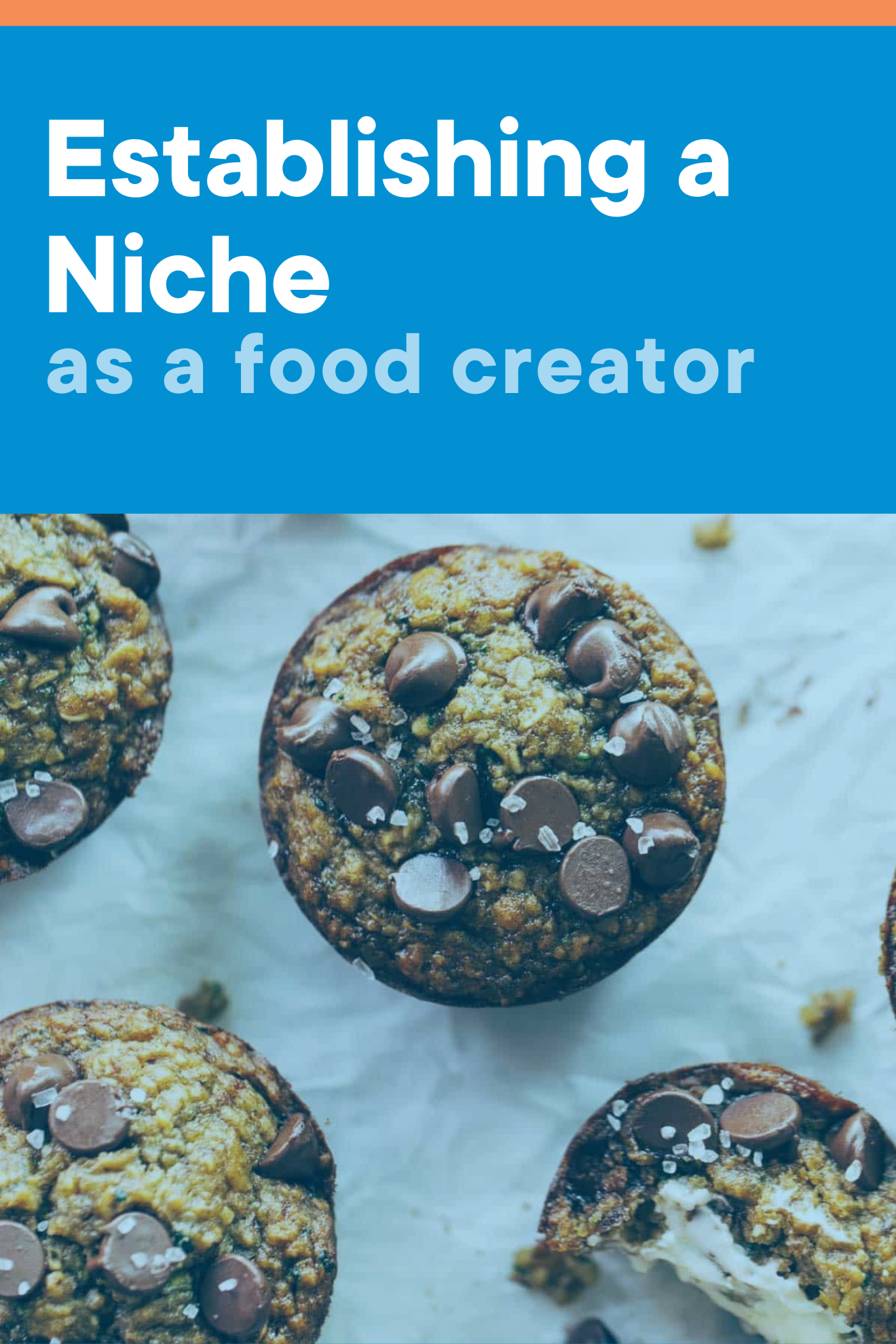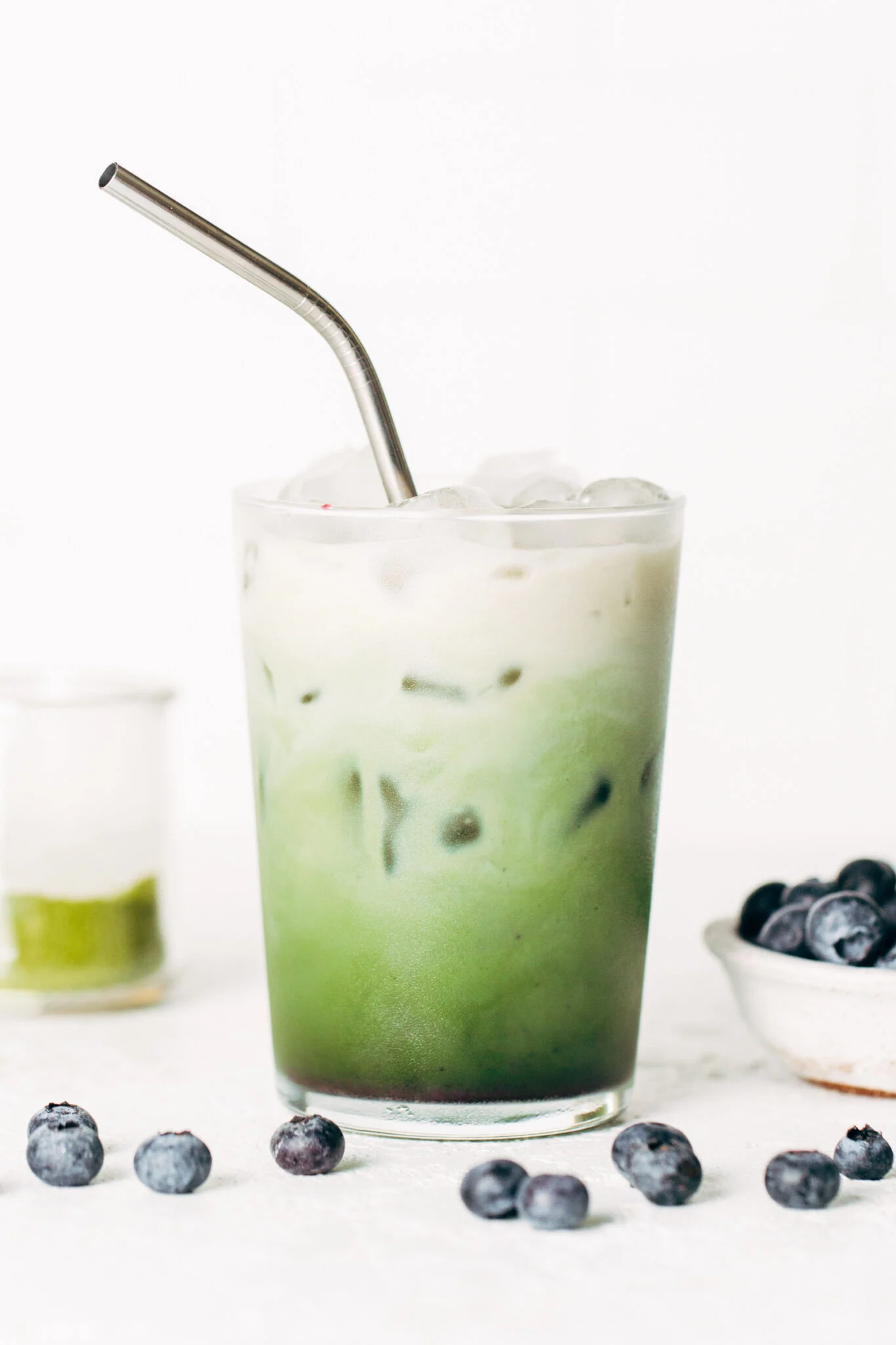So you’ve decided to start a food blog! But what should your food blog be about? What should the focus of your content be? Should you write about *all the foods* or a more specific category? That’s where a niche comes in!
Establishing a food niche is one of the most important aspects of starting a food blog. But it can be so difficult to choose a niche — it’s a big commitment. We’re breaking down everything you need to know about picking a niche as a food creator in this post — keep reading!

What is a niche?
In the context of food blogging, a niche can be defined as a “specialized market” within the very broad category of food or recipes. For example, a niche within the food blogging space might be a vegan baking blog.
But Merriam Webster also provides an alternative definition (“a place, employment, status, or activity for which a person or thing is best fitted”) which feels very appropriate when you’re setting out to choose your niche. What type of content are you best suited to?
Why pick a niche for a food blog?
There are hundreds of thousands of food blogs. A niche is a way for your blog to stand out amongst the masses. What will your food blog be known for? What resources will you provide for your readers?
Establishing a niche helps to narrow your content strategy and provide a more concrete vision for the type of content you will create. This can be helpful as you brainstorm new recipes for your site because it gives you lanes within which your content will stay. You won’t just be developing a recipe; you’re developing vegan baking recipes.
Want to learn more about developing a content strategy?A niche can also help to define your audience and provide a sense of community for your readers. A reader might think, “when I come to this site, I know I’ll find recipes for beginner bakers, just like me.”
Just as your niche may welcome in readers who align with your recipes and philosophy, it may also discourage certain readers from frequenting your site. And that is okay! You can’t please everyone. You want your readers to come back for more recipes and become a part of your food blog community.
Establishing and committing to a niche also allows you to become an expert in your field (and we all know that Google likes experts)! One of our favorite food creators, Maurizio at The Perfect Loaf, is a perfect illustration of this. His niche is sourdough, and he is an expert at all things sourdough (P.S. he was on the podcast in 2023!). In addition to publishing recipes that feature sourdough, he also shares guides and baking tools that are related to his niche.
Last but not least, choosing a niche can help narrow your focus when reaching out to brands for partnerships. If you’ve established yourself as an expert in the vegan recipe field for example, it is much easier to reach out to brands that align with that space (think vegan cheeses, nut milks, etc.).

How to pick a niche for a food blog
The most important factor in selecting a niche for a food blog is YOU. You’ll want to pick a niche that you’re passionate about. Can you envision yourself sharing content about that topic for years (decades?!) to come?
Look for a niche that:
- You have experience with.
- You have a unique perspective on.
- You’re interested in.
- You enjoy.
- Has longevity.
- Serves a purpose.
If you can’t easily think of dozens of recipes that you could create within your niche… maybe it isn’t the niche for you!
It’s also a great idea to research the competition when you’re brainstorming a niche. You won’t want to pick a niche in a totally saturated market (unless you can bring a unique perspective to it!).
Lastly, it’s always best to avoid any trends or niches that might not last the test of time. For example, starting a food blog about a new piece of kitchen equipment might not be the best option for longevity.
Examples of niches for food blogs
Looking for some inspiration when it comes to food niches? Here are some examples of niches in the food space:
- Diet-based
- Vegan
- Gluten-free
- Vegetarian
- Keto
- For chronic illnesses (i.e. hypertension or diabetes)
- Healthy
- Nut-free
- Cuisine-based
- Italian
- Mexican
- Japanese
- Etc.
- Technique-based
- Baking
- Meal prep
- Equipment (i.e. slow cooker)
- Easy
- 30-minute
- Lifestyle-based
- Cooking for one/cooking for a crowd
- Seasonal
- For families
- Travel
- Budget
- Activity-based
- Running
- Weight-lifting
- Yoga
- Meal-based
- Breakfast
- Lunch
- Dinner
- Dessert
- Snacks
- Beverages
- Source-based
- Pantry
- Freezer
- Farmers market
- Grocery store (i.e. Trader Joe’s)
As you can see, the sky is really the limit when it comes to choosing a niche. And you can even combine them! A vegan freezer meal blog could be a great way to offer plant-based eaters bulk, make-ahead recipe ideas.
Remember… if you’ve already started your food blog without a niche focus, that is OKAY! You can always specialize down the road based on the content that is resonating with your readers, performing well on search engines, and/or that you enjoy creating the most!
The opposite is also true. If you start with a niche and years later decide to branch out, that is OKAY too! Once you have an established audience, it is much easier to try new types of recipes. That’s part of being an entrepreneur — experimenting!
We’re curious… do you have a niche for your food blog? How did you choose it?
I do have a niche for my blog. It’s brain-boosting gluten-free healthy recipes. I chose it because I am passionate (and knowledgeable😊) about brain health.
Thanks so much for sharing, Alina! Sounds like it’s a perfect niche for you.
Thank you so much for this guide 😀
So glad you found it helpful!
Hi Emily,
I have found this blog post really helpful. Especially, the category-based niche list you have provided seems like a good idea.
Thank you for your time and efforts.
Hi Zafar – happy you found it helpful!
Thank you so much